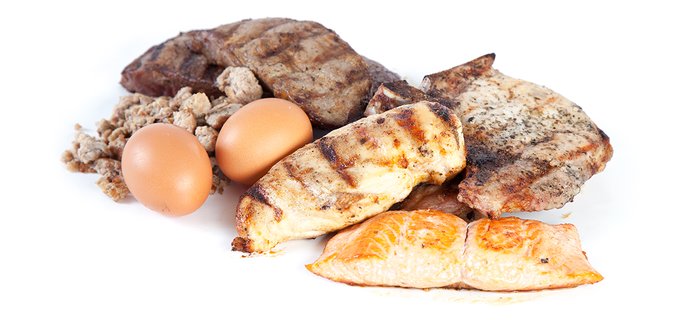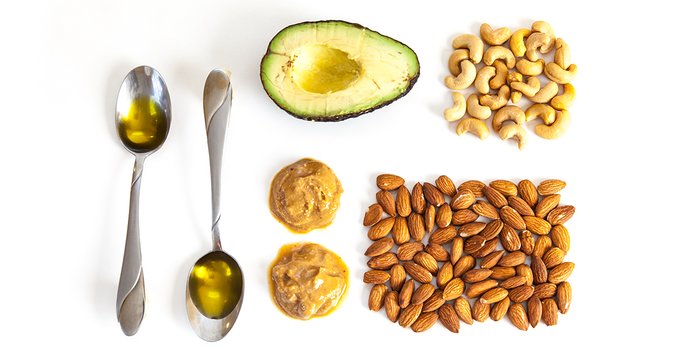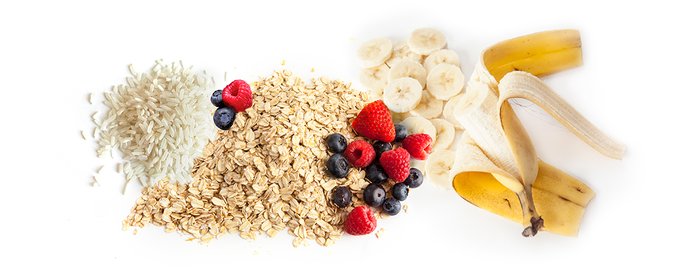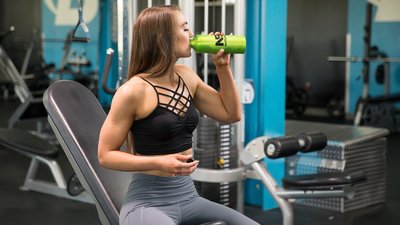Main | The 3 Best Supplements For Fat Burning | Your 4 Must-Know Nutritional Principles For Losing Fat | Your 4-Week Plan To Guaranteed Fat Loss
Before you dive into Hunsberger's workout plan, figure out your daily caloric and macronutrient needs. First, use this calculator to figure out how many calories you can have every day while still droppingweight:
To find out how to divide your macronutrients, use this calculator.
For both calculators, provide your statistics then select "fat loss" as your goal. Hopefully your activity level will be somewhere between "moderately active" and "very active," depending on what you do for the 22 hours you're not in the gym.
Keep in mind that the daily calorie number is just an estimate. To get dialed in, you need to begin tracking your food intake every day, and checking your morning body weight a few times per week. Your weight-loss goal should be 0.5-1.0 percent of your body weight per week. For example, 0.9-1.8 pounds per week if you weigh 185 pounds.
If you're losing weight slower than this—or not losing at all—reduce your total calorie intake by 10-15 percent (read more below about how to do this.) If you're losing too quickly, raising your risk of muscle loss, increase your calories by 5-10 percent. Whichever way you're going, adjust your meals until your rate of weight loss falls within 0.5-1.0 percent of your body weight per week.
Principle 1: Eat More Protein (And Distribute It Evenly)
Protein offers fat-loss phase benefits that'll help you maximize your physique changes as you go through this program. First, it plays a major role in muscle growth and repair. As long as you consume enough protein, you can optimize muscle maintenance even when restricting calories.

Protein can also reduce your appetite because it takes time to digest, so food stays in your stomach longer. Plus, protein triggers the release of several satiety hormones, including cholecystokinin, to further suppress your hunger. And the more protein you eat, the more cholecystokinin is released and the less hungry you feel.
But how much protein do you need to eat? A study published in the Journal of the International Society of Sports Nutrition found that natural bodybuilding athletes preparing for competition do best by consuming 1.1-1.4 grams per pounds of body weight, for example, 204-259 grams of protein per day for a 185-pound person.[1] Go back to the figure you got from the macro calculator to make sure your daily protein target falls within this range.
The recommendation from the study is a great starting point. You've also got to make sure you distribute your protein intake evenly throughout the day to maximize muscle growth and maintenance. That's because you need a minimum threshold of leucine, an amino acid found in protein that fully activates muscle growth and repair at the cellular level. You should aim to consume 25-35 grams of protein per meal to get the recommended dose of 2-3 grams of leucine per meal.
Make sure your protein comes from high-quality, complete proteins, such as dairy, beef, poultry, pork, and soy. These complete proteins are rich in leucine and contain all nine amino acids essential for maximizing muscle growth and repair.
Principle 2: Reduce Fat First
The amount of protein you consume will be the same throughout the program. Your challenge now is to adjust your other macronutrients to create a calorie deficit. When it's time to start cutting calories, cut fat first.
You don't want to start by reducing carbohydrates because they are the primary fuel source for your brain and muscles. During exercise, your body relies on both carbohydrates and fat as fuel. The higher the volume and intensity of your workout, the more your body relies on carbohydrates.

Let's say you need to create a 300-calorie deficit. You can remove 33 grams of fat, the equivalent of 2 tablespoons of olive oil or 4 tablespoons of peanut butter (I know, it still sucks, but it's for the gains). Or you can cut out 75 grams of carbs, or about 2 cups of brown rice or 3-1/2 medium-sized apples!
Cutting those carbs would probably have a helluva bigger impact on your satiety. And if you're constantly hungry when you're dieting, your chances of sticking to your plan are slim to none, which means those abs won't be popping anytime soon.

Principle 3: Prioritize Carbohydrates Around Your Workouts
And as I discuss in detail in my article "Your Guide to Intra-workout Carbohydrates," consuming carbs during your workout delivers a quickly digested fuel supply that spares muscle glycogen, enhances focus, and reduces the extent of muscle breakdown.
Your post-workout meal, which you try to eat within an hour of finishing your workout, should be full of carbohydrates to replenish your muscle glycogen stores and properly prepare your body for tomorrow's workout. Eating carbs post-workout also minimizes the rate of muscle breakdown, and enhances the recovery process.

To maximize energy before and during your workout, and to fuel recovery afterward, distribute your carbohydrate intake as follows:
- Pre-workout meal: 30-40%
- Intra-workout shake: 5-15%
- Post-workout meal: 30-40%
By following this approach, you'll be able to continue training hard and progressing well, while doing everything necessary to maximize muscle maintenance as you diet.
Principle 4: Drink More Fluids
Getting hungry when you diet—and you will get hungry—can send you sprinting to the pantry for comfort food. Well, here's a big secret: To keep your appetite in check without knocking yourself out of a calorie deficit, drink more fluids before, during, after, and in-between meals.
When you drink lots of fluids at once, your stomach expands, which triggers the "stretch receptors" located in your stomach lining to send satiety signals to your brain. By staying hydrated throughout the day, and drinking 12-16 ounces of water anytime hunger hits, you're more able to skip that high-calorie snack you were fantasizing about and stick to your plan.
Main | The 3 Best Supplements For Fat Burning | Your 4 Must-Know Nutritional Principles For Losing Fat | Your 4-Week Plan To Guaranteed Fat Loss
References
- Helms, E. R., Aragon, A. A., & Fitschen, P. J. (2014). Evidence-based recommendations for natural bodybuilding contest preparation: nutrition and supplementation. Journal of the International Society of Sports Nutrition, 11(1), 20.


